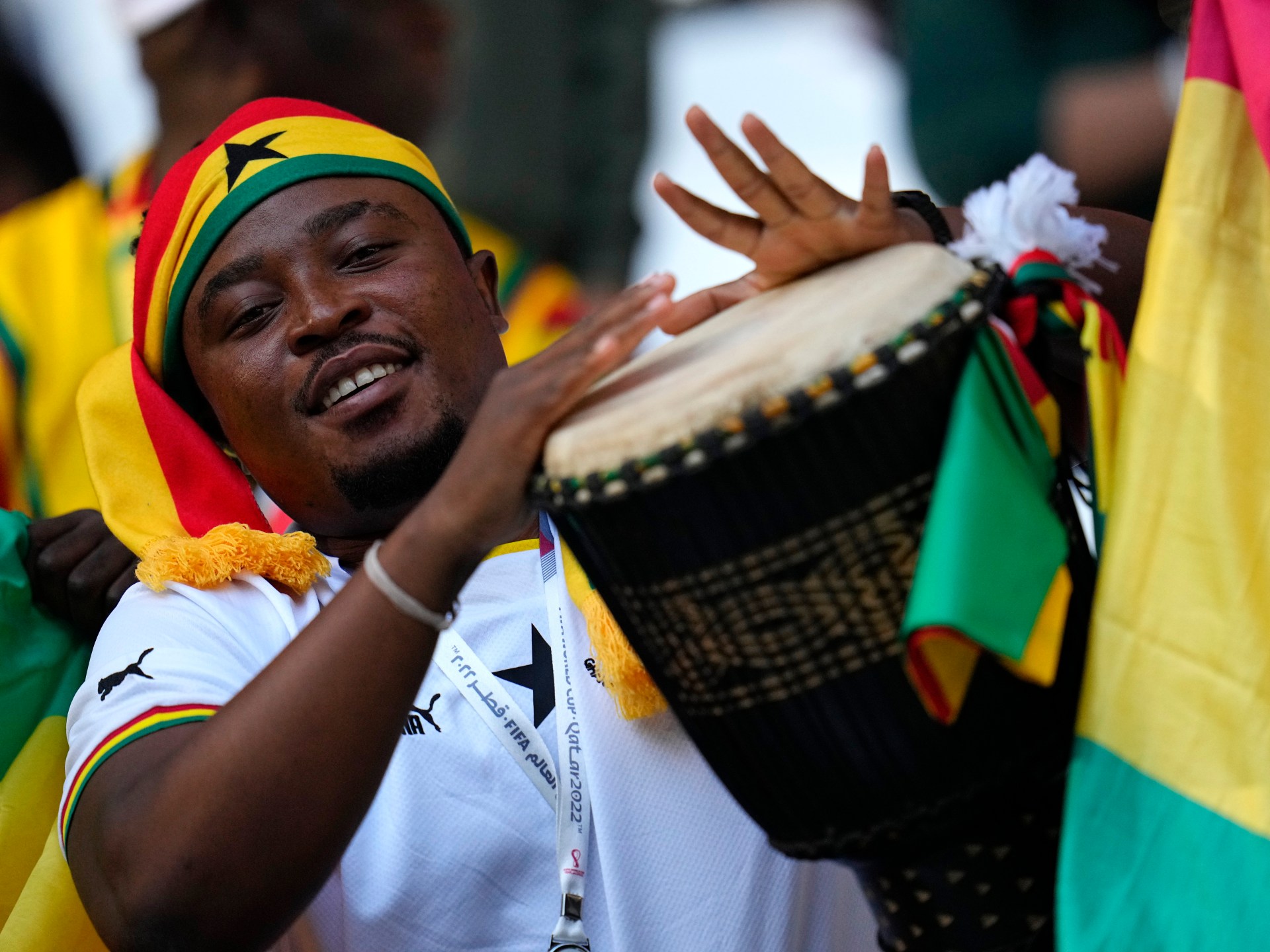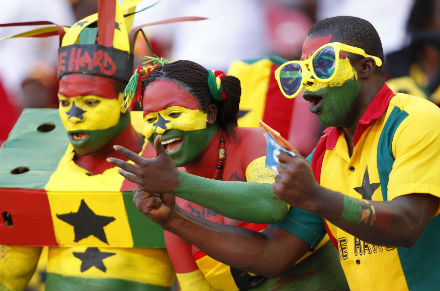“Football Fan Culture in Ghana: Passion, Rituals, and Social Significance
Related Articles Football Fan Culture in Ghana: Passion, Rituals, and Social Significance
Football Fan Culture in Ghana: Passion, Rituals, and Social Significance

Football in Ghana is more than just a sport; it is a cultural phenomenon that permeates nearly every aspect of society. The passion, rituals, and social significance attached to football have created a unique and vibrant fan culture that is deeply ingrained in the national identity. From the bustling streets of Accra to the rural villages, the love for football unites Ghanaians from all walks of life, transcending ethnic, religious, and socioeconomic boundaries.
Historical Roots and Evolution
The roots of football in Ghana can be traced back to the late 19th century when British colonialists introduced the sport. Initially, football was primarily played by Europeans, but it soon gained popularity among the local population. By the early 20th century, several indigenous football clubs had emerged, marking the beginning of a new era in Ghanaian sports history.
The establishment of the Ghana Football Association (GFA) in 1957, the same year Ghana gained independence, was a watershed moment for the sport. The GFA played a crucial role in organizing and promoting football at all levels, fostering a sense of national pride and unity.
Ghana’s national football team, the Black Stars, quickly became a symbol of national identity and a source of immense pride. The team’s success in international competitions, particularly in the Africa Cup of Nations (AFCON), further fueled the passion for football among Ghanaians.
Key Elements of Football Fan Culture in Ghana
The football fan culture in Ghana is characterized by several key elements that contribute to its unique and vibrant nature:
-
Unwavering Passion: Ghanaian football fans are known for their unwavering passion and unwavering support for their favorite teams. They are deeply emotionally invested in the sport and express their love through enthusiastic cheering, singing, and dancing.
-
Rituals and Superstitions: Rituals and superstitions play a significant role in Ghanaian football fan culture. Fans often engage in pre-match rituals, such as wearing lucky charms, visiting shrines, or performing traditional dances, to ensure their team’s victory.

Vibrant Stadium Atmosphere: Football stadiums in Ghana are renowned for their vibrant and electrifying atmosphere. Fans create a cacophony of sounds with drums, horns, and vuvuzelas, creating an intimidating environment for opposing teams.
-
Local Rivalries: Intense rivalries between local clubs, such as Hearts of Oak and Asante Kotoko, add another layer of excitement and passion to the football fan culture. These matches are often fiercely contested, both on and off the field, and attract massive crowds.
-
Community Bonding: Football serves as a powerful tool for community bonding in Ghana. Fans from different backgrounds come together to support their teams, fostering a sense of unity and shared identity.
-
Social Commentary: Football provides a platform for social commentary in Ghana. Fans often use football-related slogans and chants to express their opinions on political and social issues.
Impact on Society
The football fan culture in Ghana has a profound impact on various aspects of society:
-
National Identity: Football is deeply intertwined with the Ghanaian national identity. The success of the Black Stars on the international stage has instilled a sense of national pride and unity among Ghanaians.
-
Social Cohesion: Football brings people from different ethnic, religious, and socioeconomic backgrounds together, fostering social cohesion and breaking down barriers.
-
Economic Impact: The football industry in Ghana has a significant economic impact, creating jobs and generating revenue through ticket sales, merchandise, and sponsorships.
-
Youth Development: Football serves as a source of inspiration and aspiration for young Ghanaians. Many young people dream of becoming professional footballers and use the sport as a means of escaping poverty.
-
Tourism: Ghana’s vibrant football fan culture attracts tourists from around the world, boosting the tourism industry and promoting the country’s image as a football-loving nation.
Challenges and Opportunities
Despite its positive contributions, the football fan culture in Ghana also faces several challenges:
-
Hooliganism: Isolated incidents of hooliganism and violence have marred the image of Ghanaian football. Authorities are working to address this issue through stricter security measures and educational campaigns.
-
Poor Infrastructure: Many football stadiums in Ghana are in need of renovation and upgrades. The lack of adequate infrastructure can hinder the development of the sport and negatively impact the fan experience.
-
Corruption: Corruption within the football administration has been a persistent problem in Ghana. Efforts are being made to combat corruption and promote transparency and accountability.
Despite these challenges, there are also significant opportunities for growth and development:
-
Investment in Youth Development: Investing in youth football academies and grassroots programs can help nurture young talent and ensure the future success of Ghanaian football.
-
Improved Infrastructure: Upgrading football stadiums and building new facilities can enhance the fan experience and attract more investment into the sport.
-
Professionalization of the League: Professionalizing the Ghana Premier League can attract more sponsors and improve the quality of play, making it more attractive to fans.
-
Leveraging Technology: Utilizing technology, such as mobile apps and social media, can enhance fan engagement and create new revenue streams for football clubs.
Notable Fan Groups and Their Influence
Several fan groups in Ghana have played a significant role in shaping the football fan culture and influencing the sport’s development. These groups often have unique identities, rituals, and ways of supporting their teams. Some notable fan groups include:
-
The National Supporters Union (NSU): The NSU is the official supporters’ group of the Black Stars. They are known for their colorful attire, energetic drumming, and unwavering support for the national team.
-
Hearts of Oak Supporters Union: This group is dedicated to supporting Accra Hearts of Oak, one of the oldest and most successful clubs in Ghana. They are known for their passionate chanting and organized match-day activities.
-
Asante Kotoko Supporters Union: The counterpart to Hearts of Oak’s supporters, this group backs Asante Kotoko, the other giant in Ghanaian football. Their rivalry with the Hearts of Oak supporters is legendary, fueling intense matches and passionate displays of support.
-
Various Regional and Club-Specific Groups: Beyond the national and major club levels, numerous smaller fan groups exist, often organized around specific regions or clubs. These groups contribute to the overall diversity and vibrancy of Ghanaian football fan culture.
These fan groups often engage in activities beyond just attending matches. They may organize community events, fundraising activities for their clubs, and social initiatives that benefit their local communities. They also play a role in shaping the atmosphere at matches, creating a sense of excitement and camaraderie among supporters.
The Role of Music and Art in Football Fan Culture
Music and art play a vital role in Ghanaian football fan culture, adding to the vibrancy and expressiveness of the sport.
-
Anthems and Chants: Each club and the national team often have their own anthems and chants that are sung with passion and pride by supporters. These songs serve as a rallying cry and a way to express solidarity and loyalty.
-
Drumming and Percussion: Traditional drumming and percussion instruments are integral to the atmosphere at Ghanaian football matches. Drummers create a rhythmic beat that energizes the crowd and adds to the excitement.
-
Visual Arts: Visual arts, such as painting, sculpture, and graphic design, are also used to express support for football teams and players. Murals, banners, and other artworks often adorn stadiums and public spaces, showcasing the creativity and passion of Ghanaian football fans.
-
Dance: Dance is another important element of Ghanaian football fan culture. Supporters often engage in spontaneous dances during matches, celebrating goals and victories with exuberance.
Conclusion
Football fan culture in Ghana is a vibrant and dynamic phenomenon that reflects the country’s passion for the sport, its rich cultural heritage, and its strong sense of national identity. Despite the challenges it faces, the football fan culture in Ghana continues to thrive, bringing people together, fostering social cohesion, and contributing to the country’s economic and social development. With continued investment in youth development, improved infrastructure, and efforts to combat corruption, the future of football fan culture in Ghana looks bright. The passion, rituals, and social significance attached to football will continue to unite Ghanaians from all walks of life, making it an integral part of the national identity for generations to come.

